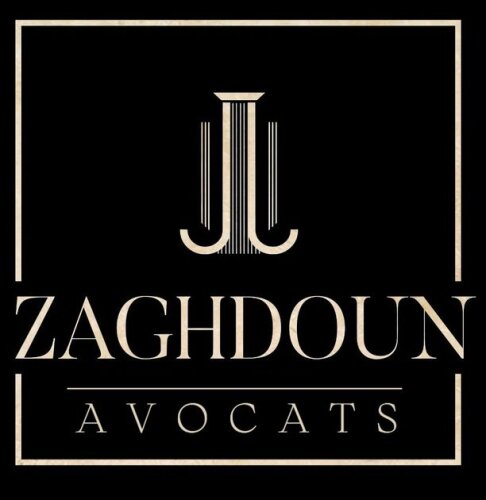Best Gaming Lawyers in Israel
Share your needs with us, get contacted by law firms.
Free. Takes 2 min.
Or refine your search by selecting a city:
List of the best lawyers in Israel
About Gaming Law in Israel
Gaming law in Israel is a complex and evolving field due to the widespread interest in both traditional and online gaming. It encompasses various activities, including online casinos, sports betting, and other forms of gaming entertainment. Israeli law is relatively restrictive when it comes to gambling, with a strong focus on preventing illegal gambling activities and protecting consumers. While gambling is heavily regulated, certain forms such as the National Lottery and sports betting through the Toto are legal under specific regulations. The growing digital landscape has added a new layer of complexity, with the government keeping a keen eye on internet-based gaming activities.
Why You May Need a Lawyer
If you are involved in the gaming industry or wish to participate in gaming activities in Israel, there are several scenarios where consulting a lawyer could be beneficial:
- Understanding the legality of launching a gaming-related business, such as a tech platform or a game development studio.
- Ensuring compliance with local gaming laws to avoid penalties for illegal activities.
- Protecting intellectual property related to games and gaming technologies.
- Navigating disputes related to gaming contracts or consumer rights issues.
- Assistance with obtaining licenses or permits necessary for legal gaming operations.
Local Laws Overview
Here is a summary of key legal aspects of gaming in Israel:
- The Prevention of Gambling Ordinance (1947) largely prohibits unlicensed gambling. Only the National Lottery and Toto sports betting are exceptions.
- Online gambling is generally prohibited. However, Israeli courts have sometimes considered the legality of online activities on a case-by-case basis.
- Advertising or promoting unauthorized gambling is illegal.
- There are strict penalties for operating illegal gambling establishments, including fines and imprisonment.
- Initiatives to legislate and regulate online gaming are ongoing, but significant restrictions remain.
Frequently Asked Questions
Is gambling legal in Israel?
Gambling is heavily restricted in Israel, with legal gambling limited to the National Lottery and Toto sports betting.
Can I play at international online casinos from Israel?
While Israeli law prohibits online gambling, in practice, many Israelis access international online casinos. This is technically illegal, and legal risks exist.
Are there any legal penalties for participating in illegal gambling?
Yes, engaging in or operating illegal gambling activities can result in significant fines and imprisonment.
Is there a licensing process for new gaming businesses in Israel?
Yes, there are licensing procedures for specific gaming operations authorized by the government, primarily in the lottery and sports betting sectors.
What should I do if I want to start a gaming company in Israel?
Consult a lawyer specializing in gaming law to ensure compliance with all local regulations and obtain any required licenses.
Is betting on international sports events allowed?
Betting is allowed through legalized platforms like Toto; however, private and unlicensed bets are not permitted.
Can I promote an online gaming website in Israel?
Promoting unauthorized gambling is illegal and can lead to penalties. Legal advisement is recommended before any promotional activities.
Are mobile gaming apps subject to the same laws as traditional gambling?
Yes, apps that include gambling-related content are subject to the same gaming laws and restrictions.
How can players ensure that a gaming operation is legitimate?
Players should check for licenses issued by authorized entities and seek games listed with legal operators such as the National Lottery or Toto.
What protections exist for consumers in gaming disputes?
Consumer protection laws apply to transactions related to legal gaming activities, and disputes can be resolved through appropriate legal channels.
Additional Resources
Several resources can assist individuals seeking more information about gaming laws in Israel:
- The Ministry of Finance, which oversees certain regulatory aspects of legal gaming operations.
- The National Lottery and Toto, which provide legal gaming services.
- Legal aid organizations offering consultations on gaming-related legal issues.
Next Steps
If you require legal assistance in the gaming industry, consider the following steps:
- Consult with a lawyer who specializes in gaming law to assess your specific situation.
- Gather all relevant documents and information related to your gaming activity or interest.
- Stay informed about changes to gaming regulations in Israel to ensure ongoing compliance.
- Use legitimate and licensed platforms for any gaming activities to minimize legal risks.
Lawzana helps you find the best lawyers and law firms in Israel through a curated and pre-screened list of qualified legal professionals. Our platform offers rankings and detailed profiles of attorneys and law firms, allowing you to compare based on practice areas, including Gaming, experience, and client feedback.
Each profile includes a description of the firm's areas of practice, client reviews, team members and partners, year of establishment, spoken languages, office locations, contact information, social media presence, and any published articles or resources. Most firms on our platform speak English and are experienced in both local and international legal matters.
Get a quote from top-rated law firms in Israel — quickly, securely, and without unnecessary hassle.
Disclaimer:
The information provided on this page is for general informational purposes only and does not constitute legal advice. While we strive to ensure the accuracy and relevance of the content, legal information may change over time, and interpretations of the law can vary. You should always consult with a qualified legal professional for advice specific to your situation.
We disclaim all liability for actions taken or not taken based on the content of this page. If you believe any information is incorrect or outdated, please contact us, and we will review and update it where appropriate.
Browse gaming law firms by city in Israel
Refine your search by selecting a city.
















